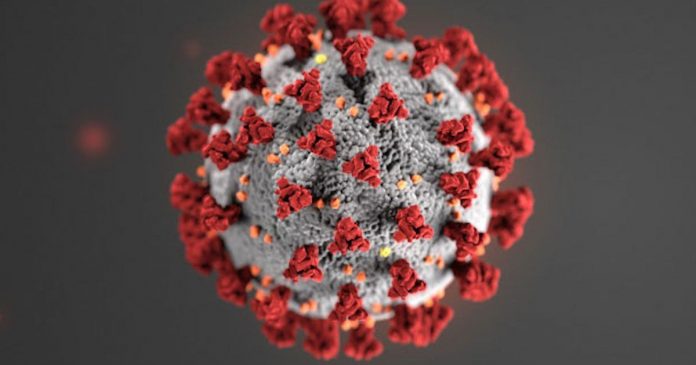Canada’s Supreme Court ruled in 2013 that a major Toronto Hospital could not withdraw life-support from a minimally conscious and severely brain-damaged man without his family’s consent.
Now, in another sign of these extraordinary times, the Ontario government is being asked to temporarily suspend the law requiring doctors get consent of patients or families before withdrawing a ventilator or other life-sustaining treatment from people facing a grim prognosis, should COVID-19 crush hospitals.
The recommendation for an Executive Order to suspend the province’s Health Care Consent Act for withdrawal of treatment in the ICU, should the situation become so dire, comes as Ontario, Quebec and other provinces prepare protocols to determine who should get critical care — and who should be left behind — if hospitals are flooded with COVID patients.
The request, deeply disturbing to disability advocacy groups, comes from Ontario’s COVID-19 Bioethics Table, which is recommending that the province ensure “liability protection for all those who would be involved in implementing the Proposed Framework … including an Emergency Order related to any aspect requiring a deviation for the Health Care Consent Act.” The act requires doctors obtain agreement from patients, or their substitute decision makers, with disputes resolved by the Consent and Capacity Board, an independent tribunal.
This week, the Ontario Critical Care Covid Command Centre issued an “emergency standard of care” to prepare hospitals for the worst-case scenario, an Italy-like surge in demand for critical care. The over-arching objective, the document states, is to “save the most lives in the most ethical manner possible.”
A critical care triage should be considered an option of last resort, invoked only after all reasonable attempts have been made to move people to other hospitals where there is space and staff to care for them, and only for as long as the surge lasts, the document says.
The goal is to minimize deaths, minimize the risk of discrimination and “unconscious bias” against people with disabilities, racialized communities and other vulnerable groups, and minimize “moral injury and burnout” among staff forced to decide who may live and who may die.
According to the document, prepared on behalf of Ontario’s critical care COVID command centre, priority should be given to people with the greatest likelihood of surviving whatever it is that brought them to hospital — COVID-19, heart attack, liver disease, a bleed in the brain or other life-threatening illness. Those with a high likelihood of dying within 12 months from that critical sickness would receive lower priority for an ICU bed.
“It’s really important to be clear here — this is not about how long you’re likely to live, it’s not a life span question,” said Dr. James Downar, head of the division of palliative care at the University of Ottawa and a member of the Bioethics Table. “It’s your probability of being alive 12 months after developing critical illness.”
The protocol is meant to be applied to new patients, or people already in hospital whose condition is worsening. “We’re suggesting, out of a principle of fairness, the same approach should apply to people inside the ICU,” Downar said. “It would be unfair to treat people differently depending on the timing that they presented.”
“Nobody likes the idea of ever withdrawing life-support on somebody without their permission, without their consent,” Downar said. “But in a triage scenario, we’re talking about a scenario where the focus is no longer on the individual himself, but now on our population as a whole, and trying to maximize the number of people who will survive an overwhelming surge.”
The document now being circulated to Ontario hospitals doesn’t include a provision for withdrawal of potentially life-sustaining treatment without consent. Instead, it says that ICU doctors should regularly reassess people admitted to ICU, and consider withdrawal of life support “through a shared decision-making process with SDMs (substitute decision-makers) if a patient does not appear to be improving.”
But Downar and other doctors said it’s not possible to operate a triage model in which all decisions are made with the consent and permission of people involved, because many people would simply opt out.
“We are going to say, ‘by the way, we are taking your family member off the ventilator in lieu of another patient who we feel has a better prognosis, given this pandemic condition. Do you agree?’ I think that if we did that we would not get consent. Nobody is going to give us consent,” said Dr. Peter Goldberg, head of critical care at Montreal’s McGill University Health Centre.
The Bioethics Table’s request is now before the Ontario Health Ministry. “We are hopeful that, as part of the state of emergency, should we need it, that there will be an executive order allowing us to withdraw,” Downar said
With an Executive Order in place, doctors could put off escalating triage and continue to offer intensive care to every person who might benefit, including borderline cases — “right up to the point that the critical care beds are literally full,” he said. ICUs could run at full capacity. Only then, as new patients come in who meet the triage criteria — a lower risk of death — and who need beds would ICU care slowly start to be withdrawn from people who aren’t responding and are least likely to, Downar said.
Without the Executive Order, triage would have to be started sooner, in order to reserve beds for people with a high likelihood of survival. Fewer people would be offered intensive care, and more people would die, Downar said.
































